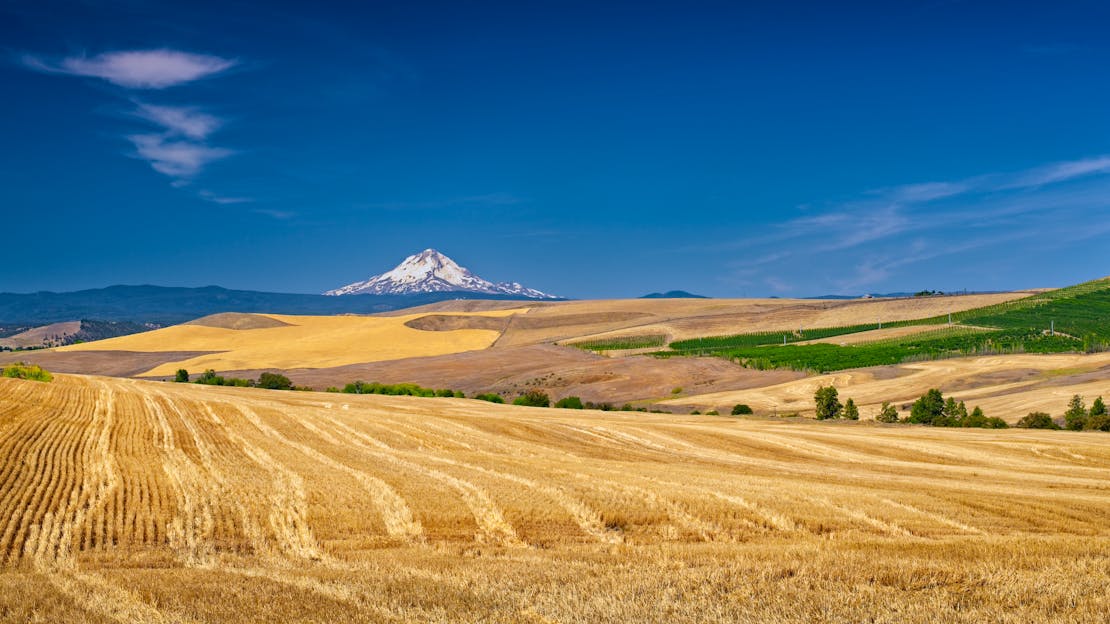Wildlife and the Farm Bill
The Farm Bill is among our most important federal policies for wildlife conservation. This expansive legislation governs many aspects of our nation’s production of food and fiber, from farm income and crop insurance to nutrition programs and rural development. But Farm Bill programs are also essential for wildlife that depend on private land. The Farm Bill is up for renewal this year, and Defenders of Wildlife is working with Congress to ensure that the bill’s working lands and agricultural support programs also equitably provide for productive and resilient wildlife habitat on private land.
What does farming have to do with wildlife?
Nearly 70 percent of the land in the lower 48 States is privately owned, with more than 40 percent of that area managed for agriculture. These diverse landscapes support thousands of species of conservation concern. In fact, private lands support more than 70 percent of the species listed under the Endangered Species Act, with ten percent of listed species occurring only on private lands. These lands also disproportionately contain remaining tall and shortgrass prairie, longleaf pine forests and bottomland hardwood forests — and the wildlife that depend on these ecosystems.
The Farm Bill offers voluntary incentive programs for landowners to create, preserve and restore wildlife habitat on their pasture, cropland or forest land; remove lands from production to help reduce runoff and erosion into streams; and rebuild soil quality to benefit both agriculture and habitat. Landowners work with the U.S. Department of Agriculture and partners like Defenders to implement these programs. This work benefits an astounding array of flora and fauna, from hellbenders to golden-winged warblers, to bumblebees, to the hundreds of migratory species that depend on private lands for breeding, nesting and wintering habitat. In turn, healthy habitats support productive working lands that are more resilient to disasters such as flooding and drought and contribute to food security. For example, pollinators provide essential ecosystem services to crops and are directly responsible for at least one out of every three bites of food that we eat. The participation of private landowners in Farm Bill conservation programs is critical to the long-term conservation and recovery of wildlife nationwide.
The 2023 Farm Bill
Approximately every five years, Congress reauthorizes the Farm Bill to update policy and establish initial funding levels for Farm Bill programs. The current 2018 Farm Bill is set to expire on September 30, 2023.
Defenders has worked with partners and other experts to develop Farm Bill recommendations focused on four critical areas: the interconnected biodiversity loss and climate change crises; conflict prevention; equity; and accountability. Last week, we released our recommendations for the 2023 legislation.
Defenders’ recommendations for the Farm Bill aim to:
• Address the interconnected threats of climate change and biodiversity loss.
• Support producers, especially those who have historically been excluded from Farm Bill programs, in conserving wildlife on their land.
• Ensure that funds set aside for wildlife conservation actually benefit wildlife.
• Compensate livestock losses caused by threatened or endangered species.
• Expand eligibility and funding for historically underserved and Tribal producers.
• Assist producers in gaining the clear title to their land necessary to participate in Farm Bill programs.
• Make sure Farm Bill programs are producing the results we want.
• Ensure producers undertake soil and wetland conservation on vulnerable lands in exchange for federal crop insurance subsidies.
Defenders supports increasing funding for specific conservation programs while maintaining resource levels for other programs, and opposes any provisions that would that circumvent, undermine or weaken bedrock federal conservation laws. Conservation on private lands faces significant challenges, but through strong Farm Bill programs and support, we can provide habitat for wildlife while keeping working lands active.






